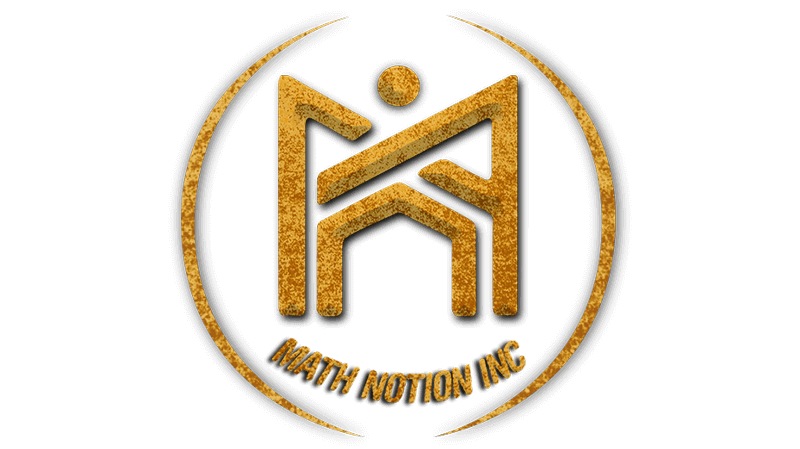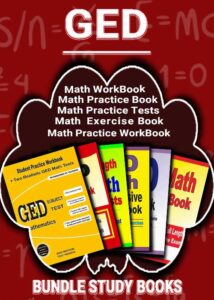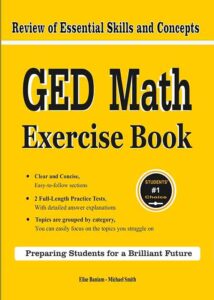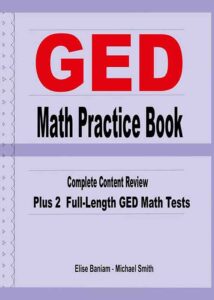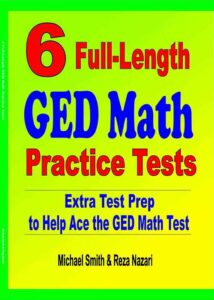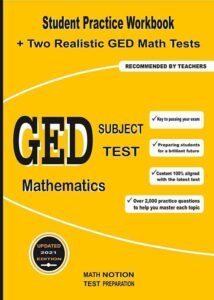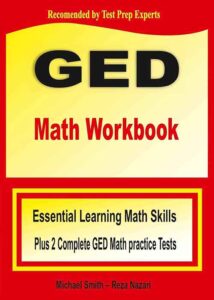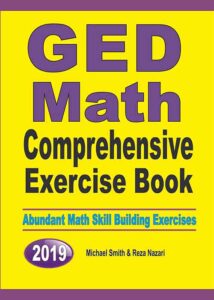
Study Time: 3minutes
How Many Questions Are on the GED Math Test?
Introduction
The GED (General Educational Development) math test is a critical component of the GED exam, which serves as a high school equivalency test for those who did not complete traditional high school. Understanding the structure and content of the GED math test is essential for adequate preparation. Test-takers ask one of the most common questions: “How many questions are on the GED math test?” This article will delve into the details of the GED math test, including the number of questions, the topics covered, and strategies for success. Whether you are a student preparing for the test or an educator helping students get ready, this comprehensive guide will provide valuable insights to help you achieve your goals.
1. Overview of the GED Math Test
1.1 Purpose of the GED Math Test
The GED math test is designed to measure the mathematical skills and knowledge that are typically acquired in a high school education. It is a critical component of the GED exam, allowing individuals who did not complete high school to demonstrate their academic proficiency and earn a high school equivalency credential. The GED math test assesses a range of mathematical concepts, from basic arithmetic to more advanced topics like algebra and geometry.
1.2 Importance of the GED Math Test
A passing score on the GED math test is essential for earning the GED credential, which can open doors to higher education, better job opportunities, and increased earning potential. The math test is often viewed as one of the more challenging sections of the GED exam, making thorough preparation crucial for success.
1.3 Format of the GED Math Test
The GED math test is divided into two parts. The first part allows a calculator, while the second part does not. This format is designed to test both computational skills and the ability to solve problems without technological assistance. The test includes a variety of question types, including multiple-choice, drag-and-drop, hot spot, and fill-in-the-blank questions.
2. Number of Questions on the GED Math Test
2.1 Total Number of Questions
The GED math test consists of approximately 46 questions. This number can vary slightly as the test is adaptive, meaning the difficulty of questions can change based on the test-taker’s performance. However, 46 questions are the standard for most test-takers.
2.2 Types of Questions
The GED math test includes several types of questions to assess different mathematical skills:
- Multiple-choice: Questions with four or more answer choices.
- Drag-and-drop: Questions where you move items into the correct positions.
- Hot spot: Questions where you identify specific areas on a graphic.
- Fill-in-the-blank: Questions where you provide a numerical answer.
2.3 Distribution of Questions
The questions on the GED math test are distributed across various topics. The exact distribution can vary, but generally includes:
- Algebra: 30%
- Geometry: 20%
- Number operations: 25%
- Data analysis and probability: 25%
3. Topics Covered on the GED Math Test
3.1 Algebra
Algebra is a significant component of the GED math test. Topics include:
- Linear equations and inequalities: Understanding and solving linear equations and inequalities.
- Quadratic equations: Solving quadratic equations by factoring, completing the square, and using the quadratic formula.
- Functions: Interpreting and understanding functions and their representations.
3.2 Geometry
Geometry questions cover a range of topics, including:
- Properties of shapes: Understanding the properties and classifications of shapes.
- Perimeter, area, and volume: Calculate various geometric figures’ perimeter, area, and volume.
- Coordinate geometry: Working with points, lines, and shapes in the coordinate plane.
3.3 Number Operations
Number operations questions assess basic arithmetic skills:
- Basic operations: Addition, subtraction, multiplication, and division of whole numbers, fractions, and decimals.
- Ratios and proportions: Solving problems involving ratios and proportions.
- Exponents and roots: Working with exponents, square, and cube roots.
3.4 Data Analysis and Probability
This section includes questions on:
- Interpreting data: Reading and interpreting graphs, tables, and charts.
- Statistics: Understanding measures of central tendency (mean, median, mode) and variability (range, standard deviation).
- Probability: Calculating probabilities and understanding probability concepts.
4. Preparing for the GED Math Test
4.1 Study Materials and Resources
There are numerous resources available to help you prepare for the GED math test:
- Official GED study guides: These guides comprehensively cover all test topics.
- Online courses: Websites like Khan Academy offer free classes that cover GED math concepts.
- Tutoring services: Professional tutors can provide personalized instruction and support.
4.2 Practice Tests
Taking practice tests is one of the most effective ways to prepare for the GED math test. Practice tests help you familiarize yourself with the test format and identify areas where you need additional study. Many websites offer free, paid practice tests designed explicitly for the GED math test.
4.3 Study Tips and Strategies
Here are some tips to help you study effectively:
- Create a study schedule: Allocate specific times each day for studying and stick to your schedule.
- Focus on weak areas: Spend more time studying topics that you find challenging.
- Use flashcards: Flashcards can help you memorize fundamental formulas and concepts.
5. Test-Taking Strategies for the GED Math Test
5.1 Time Management
Managing your time effectively during the test is crucial. Here are some tips:
- Pace yourself: Allocate a specific amount of time for each question and move on if you’re stuck.
- Answer easy questions first: Quickly answer questions you find easy to secure those points, then return to more challenging ones.
5.2 Approaching Different Question Types
Different question types require different strategies:
- Multiple-choice: Eliminate wrong answers to improve your chances of choosing the correct one.
- Drag-and-drop: Carefully follow instructions and check your placements.
- Fill-in-the-blank: Double-check your calculations to ensure accuracy.
5.3 Dealing with Test Anxiety
Test anxiety can affect performance, but there are ways to manage it:
- Practice relaxation techniques: Deep breathing and visualization can help calm your nerves.
- Be prepared: Thorough preparation can boost your confidence and reduce anxiety.
6. Common Challenges and How to Overcome Them
6.1 Understanding Complex Concepts
Some GED math topics can be complex. Here’s how to tackle them:
- Break it down: Simplify complex problems into smaller, manageable steps.
- Seek help: Don’t hesitate to ask for help from teachers, tutors, or online forums.
6.2 Improving Calculation Speed
Quick calculations are essential for saving time on the test:
- Practice regularly: The more you practice, the faster you’ll become.
- Use shortcuts: Learn mathematical shortcuts and tricks to speed up your calculations.
6.3 Building Confidence
Building confidence is critical to success:
- Positive mindset: Focus on your strengths and progress.
- Mock tests: Simulate test conditions with timed practice tests to build confidence.
7. Success Stories and Testimonials
7.1 Real-Life Success Stories
Reading about others’ success can be motivating:
- Jane’s Story: Jane, a mother of three, passed the GED math test on her second attempt after dedicating herself to a rigorous study schedule and utilizing online resources.
7.2 Tips from Successful Test-Takers
Here are some tips from those who have succeeded:
- Stay consistent: Consistency in studying is crucial. Set a routine and stick to it.
- Use multiple resources: Diversify your study materials to cover all topics thoroughly.
8. Frequently Asked Questions (FAQs)
Q1: How many questions are on the GED math test? A1: The GED math test consists of approximately 46 questions, which can vary slightly.
Q2: What types of questions are on the GED math test? A2: The test includes multiple-choice, drag-and-drop, hot spot, and fill-in-the-blank questions.
Q3: What topics are covered on the GED math test? A3: The test covers algebra, geometry, number operations, data analysis, and probability.
Q4: How should I prepare for the GED math test? A4: Use official study guides, take practice tests, and focus on improvement areas.
Q5: How can I manage my time during the test? A5: Pace yourself, answer easy questions first, and allocate time for more challenging questions.
